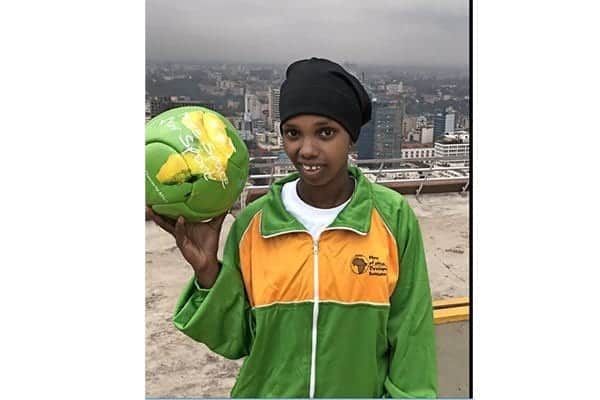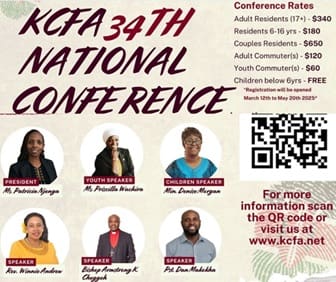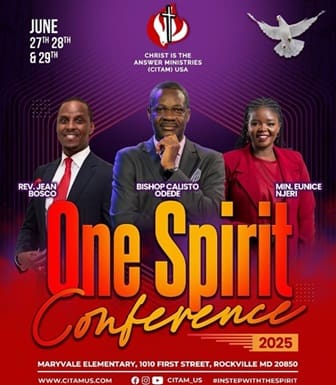
Last week in a tiny manyatta in Saku Constituency, Marsabit County, a 17-year-old girl bade farewell to her family and goats, carefully placed her old but freshly pressed tracksuit in a small, old black bag and stepped outside, where her mother stood waiting patiently with a litany of prayers.
The prayers, which a mother and her female companions must conduct for any family member before he or she sets out on a long journey, was a captivating ritual involving bead-wearing, veiled women chanting in the local dialect with eyes tightly shut, while gesticulating at the traveller who maintains a slightly forward bow throughout.
The girl is Kabale Halake, the middle child of a single mother, whose love for football has opened for her a new horizon of possibilities previously unimaginable for a young girl from a nomadic community.
She is one of four teenagers from Moyale, Saku, North Horr and Laisamis sub-counties who will be attending the Fifa Foundation Festival that begins this weekend in Moscow, Russia, before watching a World Cup match live at the Luzhniki Stadium.
Kabale Halake is passionate about football. PHOTO| COURTESY.
“I am talented in football, and I cannot sit on it. I have been playing football for six years now, and I plan to continue even though my culture is against girls participating in any sport,” she tells DN2after breaking free from her mother’s tight embrace and taking position in the van taking her to the airport.
Kabale is a Form Four student at Moi Girls Secondary School in Marsabit.
Three months ago, she was dazzled by Nairobi’s bright lights, skyscrapers and dense population when she first made the 600-kilometre trip in search of a passport.
That first encounter with Nairobi left her mind spinning, but it was good preparation ahead of her trip to Moscow, a city far more developed, and which is home to more than 17 million urban residents.
Back home, she left her mother excited at the prospect of her only daughter “climbing an aeroplane” but also deeply worried about the future of her yet-to-be-married, football-playing secondary school candidate.
CULTURAL RESTRICTION
“In our culture, girls are not allowed to take part in any sport, let alone football. My mother makes us go to madrassa for four hours on most afternoons and because I knew she would not allow me play, I would attend madrassa for two hours each day and sneak out to play,” Kabale said.
So opposed to the idea of her daughter playing football was Ms Halake that she once sabotaged Kabale’s travel plans by refusing to show her birth certificate to the organisers, who were waiting to process her travel documents.
“There was a time I was supposed to travel to the USA for an amateur football tournament. I was very excited and rushed home to tell my mother. But instead of celebrating with me, she scolded me and hid my birth certificate, and I ended up missing the trip. Without a birth certificate, I could not get a visa,” she says.
“When I was selected to attend the Fifa festival, I knew I had to be smart. I asked Fatuma to intervene and she spent three days trying to persuade my mother, but she was still reluctant to give me permission. Eventually, I stole the birth certificate and took it to Fatuma so that she could start processing my travel documents,” she explained.
Fatuma Abdulkadir is the founder and executive director of HODI, a non-governmental organisation that encourages youth in Marsabit to play football as a means of fostering peace and cohesion in the county while helping young girls to escape female genital mutilation.
“I remember we were at a tournament in Kargi when Kabale approached me and said ‘Fatuma, I want to play’. She didn’t have a team, nor did she have the proper sports attire, but she kept nagging and so I drafted her into one of the girls’ teams.”
“Her team lost the first match, and she cried and screamed. Luckily, they performed better in the two remaining games and eventually won the girls’ category of that tournament. She was very happy and from then on, she has been diligently attending training sessions,” said Fatuma.
From left: Samson Dido, Halake Kabale, Hanadi Abdinassir and Asugo Ogom will be attending the Fifa Foundation Festival in Moscow that begins over the weekend. PHOTO| COURTESY.
Accompanying Kabale to Moscow are Ogom Asogo, 18, Samson Dido, 18 and Hanadi Abdinassir, 16, who have similar stories. They come from remote parts of Marsabit County. Twenty- nine-year-old Adanoor Kiano also joined the team as a young leader.
In Marsabit, the four routinely find themselves having to deal with a plethora of challenges ranging from hunger and disease to forced female genital mutilation, interrupted schooling and ethnic clashes.
This was the reason HODI formed a men’s and women’s football team to help the warring tribes (mostly the Gabra and the Oromo) to interact peacefully and educate women and girls on the ills of FGM, which is a common practice in the area.
Every Friday, Kabale and her friends meet behind the HODI offices, where there is a grassless, unmarked pitch measuring no more than 12 yards. Here, they play football under the theme “Shoot to score, not to Kill”.
The HODI office is nothing to write home about, a dilapidated bungalow with no furniture save for the executive director’s chair and one large table.
“I dropped my law career to come here and start this initiative and the first challenge I encountered was that I was a woman. It took me 10 years to be allowed to stand and address the elders because of our religion and culture.”
“I did it because I have experienced first-hand the challenges that people in my community face. I was ‘cut’ by my mother because she thought that was the best contribution she could make to her daughter’s life. But now that I am educated, I know that it is not right to do so and I help rescue other girls from such situations.,” she said.
Fatuma Abdulkadir Adan, the founder and executive director Horn of Africa Development Initiative. PHOTO| CHARLES KAMAU
ETHNIC CLASHES
“The other major problem we have are the ethnic clashes (between the Gabra and Oromo). I am married to a man from a rival tribe (Rendille), and my parents were also from different tribes so I understand the hostility that comes with that because I have seen it in my family.”
“That’s the reason we came up with the slogan “Shoot to score, not to kill. We want the youth to score goals, not kill each other,” said Fatuma, who has won several awards for her work in Marsabit.
The Fifa festival brings together 48 non-governmental organisations from 38 countries around the world that work to make a positive difference through football.
It is an action packed 10-day programme which includes a football tournament in Red Square, Moscow, and the purpose of the event is to showcase the power of football to change lives.
The NGOs involved in this year’s edition include Street Soccer USA, Sport Against Racism Ireland, Single Leg Amputee Sports Association from Sierra Leone and Downside Up Charity, which helps improve the quality of life for Russian children with Downs Syndrome.
The festival will culminate in a football tournament and an awards ceremony at the Red Square on June 30. The tournament will follow the “football3 concept” – a different way of playing the game that is changing lives across the globe.
As the name suggests, football3 has three halves, and no referees. Mixed teams decide the rules before they play and then come together at the end of the game to reflect on their behaviour, with points awarded not only for goals, but also fair play.
SOCIAL CHANGE
“The FIFA Foundation Festival will be a unique gathering to celebrate and showcase the power of football for positive social change. Each participant was chosen because of their leadership potential and commitment in their communities,” said Federico Addiechi, FIFA’s Head of Sustainability and Diversity.
The 48 participants were required to send a short video clip of themselves playing football while explaining how they are using the sport to change lives around the community. HODI and the Mathare Youth Sports Association were selected by Fifa among 100 applicants from East Africa.
Asugo Ogom (left) bids his goats goodbye before he leaves for Moscow. PHOTO| COURTESY.
“This trip means so much to these teenagers and the whole community. On the day we left Marsabit, we had a wonderful session where the elders allowed me, a woman, to sit under a tree for the very first time. Two women and I were allowed to address them under the tree and they agreed to put down their guns and together, we will shoot to score, and not to kill,” said Fatuma.
“I can’t predict the future but my aim is to see at least one player from Marsabit play for either Harambee Stars or for Harambee Starlets,” added Fatuma.
The Horn of Africa Development Initiative is a non-governmental organisation that was formed in 2003 to address inadequate access to legal services for the poor in Marsabit. The organisation was founded by Fatuma Adan, who had just graduated with a degree in law.
She shunned salaried employment at the Judiciary to provide legal aid with six volunteers for people who needed, but could not afford, legal representation in court.
HODI was registered as a non-governmental organisation in 2007. Since then, it has grown to be the voice championing peace and development in Marsabit through advocacy, education, community cohesion through football and livelihood support programmes.
Through the slogan “Shoot to score, not to kill, HODI encourages youths in Marsabit and Moyale to drop their guns and stop ethnic clashes. Sometimes HODI organises football matches between rival clans and sometimes it integrates players from different tribes into teams in a bid to foster peace among the warring tribes.
Today, HODI has more than 25 members of staff and serves close to seven thousand people, with offices in Marsabit and Moyale.
***
About the Horn of Africa Development Initiative
The Horn of Africa Development Initiative is a non-governmental organisation that was formed in 2003 to address inadequate access to legal services for the poor in Marsabit. The organisation was founded by Fatuma Adan, who had just graduated with a degree in law.
She shunned salaried employment at the Judiciary to provide legal aid with six volunteers for people who needed, but could not afford, legal representation in court.
HODI was registered as a non-governmental organisation in 2007. Since then, it has grown to be the voice championing peace and development in Marsabit through advocacy, education, community cohesion through football and livelihood support programmes.
Through the slogan “Shoot to score, not to kill, HODI encourages youths in Marsabit and Moyale to drop their guns and stop ethnic clashes. Sometimes HODI organises football matches between rival clans and sometimes it integrates players from different tribes into teams in a bid to foster peace among the warring tribes.
Today, HODI has more than 25 members of staff and serves close to seven thousand people, with offices in Marsabit and Moyale.
Source-nation.co.ke








